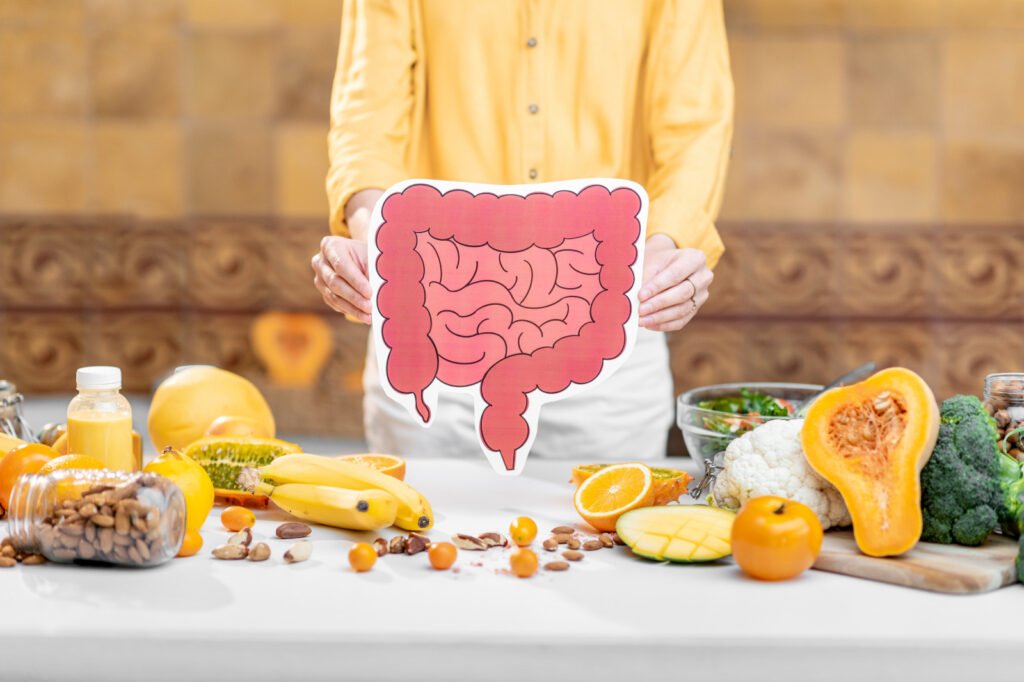
August 16, 2023. 4 minute Read

In this article, identify 10 signs of poor digestion and embrace natural solutions for a healthier gut and vibrant well-being.
Your digestive system is the backbone of overall well-being, affecting every aspect of your health, from nutrient absorption to immune function.
However, in today’s fast-paced and often stress-filled world, poor digestion has become an all-too-common concern.
From uncomfortable bloating and irregular bowel movements to persistent fatigue and skin issues, the signs of an unhappy gut can take a toll on your daily life.
But how do we identify whether or not we have poor digestion, and all the more- If yes, how do we improve that?
Related Article: 10 Signs of Poor Digestion
A balanced diet provides essential nutrients that support your digestive system.
Fruits and vegetables are rich in fibre, vitamins, and minerals, aiding in smooth bowel movements and overall digestive health. Whole grains offer additional fibre, which helps prevent constipation.
Lean proteins, such as fish, poultry, and legumes, provide essential amino acids necessary for digestive enzymes and muscle function.
Healthy fats, like those found in avocados and nuts, can promote gallbladder function and aid in nutrient absorption.
Chewing your food properly breaks it down into smaller particles, easing the burden on your stomach and intestines.
It also mixes food with saliva, which contains digestive enzymes that begin the digestion process.
Overeating can lead to indigestion and discomfort, as your digestive system has to work harder to process large amounts of food.
Eating smaller, more frequent meals allows for more efficient digestion and absorption of nutrients.
Dietary fibre adds bulk to stools and helps them move through the intestines, preventing constipation.
It also supports a healthy gut environment, as certain types of fiber serve as prebiotics that nourish beneficial gut bacteria.

Probiotics are beneficial bacteria that support gut health.
Including probiotic-rich foods, like yogurt or kefir, in your diet can help maintain a balanced gut microbiome, promoting efficient digestion and nutrient absorption.
Certain foods may trigger digestive issues in some individuals. Common culprits include spicy foods, greasy or high-fat foods, caffeine, and carbonated beverages.
Keeping a food diary can help you identify any food sensitivities or intolerances that may be causing digestive issues.
Eliminating or reducing these trigger foods can significantly improve your digestion. Pay attention to how your body reacts to different foods and limit those that seem to cause discomfort.
Chronic stress can disrupt digestion by altering gut motility and reducing blood flow to the digestive organs.
Practising stress management techniques helps maintain a more relaxed and efficient digestive system.
Regular physical activity stimulates the muscles in your gastrointestinal tract, promoting the movement of food and waste through
the digestive system.
Exercise also helps reduce stress, which further supports healthy digestion.
Lying down immediately after eating can increase the risk of acid reflux. Give your body a few hours to digest food before lying down to allow gravity to aid digestion.
Taking a short walk after meals can aid digestion by encouraging the movement of food through your digestive system. It also helps regulate blood sugar levels after eating.
Excessive alcohol and caffeine intake can irritate the lining of the stomach and intestines, potentially leading to indigestion, acid reflux, or inflammation.
If you experience persistent or severe digestive problems, it’s essential to consult a healthcare professional. They can diagnose any underlying conditions, provide personalised advice, and recommend appropriate treatments to address your specific digestive issues.
Your digestive health is undeniably linked to your overall well-being, and recognizing the signs of poor digestion is crucial for taking charge of your health journey.
By familiarising yourself with the ten red flags we can address potential issues more proactively.
But knowledge alone is not enough; the true transformation lies in the application of natural solutions.
We hope The One Liner has covered it all and these are the eleven empowering ways that offer a roadmap to naturally boost your digestive function, paving the way to improved vitality and a more balanced life.